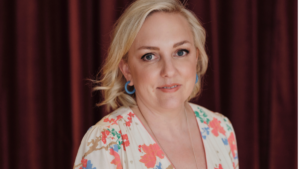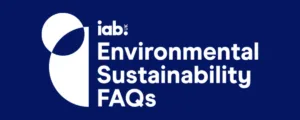As we look ahead to NDA’s flagship networking Trinity Lunch event in November, we’re talking to some of our partners and VIP guests to hear their thoughts on the industry the event will be celebrating. Next up is Steve Myslinski, Senior Director of Sales and Business Development – EMEA at Total Media.
What is the biggest opportunity for advertisers or publishers in digital marketing in the next 6 months and why?
For publishers, diversification – especially in relation to revenue streams and content. For those working in written media, branching out to video and audio is a huge opportunity. You should always be asking: ‘How can I be engaging my users more?’.
Advertisers and publishers should also be getting a deeper understanding of their users. Building and leveraging the data you have in a privacy-sensitive way will help create a reciprocal relationship that serves consumers, and ultimately your business, better.
What is the biggest challenge for advertisers and publishers and how will this be overcome?
Businesses have to build in a way that is profitable, but also compliant in the context of increasing global regulations and the imminent death of third-party data.
Once cookies disappear, advertisers will be left without a single universal, easily accessible and shareable ID. The question going forward then will be how publishers can continue to create engaging content, get their users’ attention and monetise that content without being reliant on third-party data.
There is unlikely to be a perfect quick fix for this, and we’re likely to see a fracturing of adtech in the short term as different tech solutions jostle to become the most dominant in the marketplace. Focusing on collaboration, creating confidence in content and emphasising the value exchange will all help put advertisers and publishers in a strong post-cookie position.
What technology are you most excited about at the moment and why?
One of our own recent innovations: sTag. It’s a tool that allows publishers to implement their revenue management strategy from a single tag, when a standard webpage usually demands anywhere from five to over twenty tags.
Designed to future-proof publishers, sTag enables anything revenue-centric to work from a single tag – whether that is multiple video solutions, header bidding, trust and safety vendors, display or other ad units.
sTag will also allow publishers to test different revenue configurations easily and without having to change the code on web pages. The platform gives publishers high levels of agility to navigate industry changes and flexibility to try different experiences in different environments for users at speeds that would previously have been unthinkable.
What industry individual or company have you been most impressed by this year and why?
I’ve been very impressed by Riverside.fm, which is a new podcasting platform that is changing the way people create audio content. Founded in 2019, it has come into its own over the last 18 months, helping to democratise podcast and vodcast production. Its simple interface lets even the most inexperienced podcaster record incredibly high-quality audio and video, even when participants are remote.
What has been yours or your company’s most impressive achievement this year and why?
Pivoting the company in this time of turmoil from a pure services company, to a tech company. This has involved creating our own solutions, such as sTag, which we are live with for a number of clients that we support through publisher revenue management.
We will continue to build up our platform because it provides clients with that agility and flexibility I touched on, but it also gives us independence from third-party platforms and services. In turn, that opens up the possibility of us working with other publishers who might not necessarily be naturally compatible with those third parties. Or publishers already working with their own demand stack looking for better ways of managing it.
This evolution of the company all ties back to delivering more value for our publishers by giving them a holistic view and centralised control over the full range of their revenue sources.








